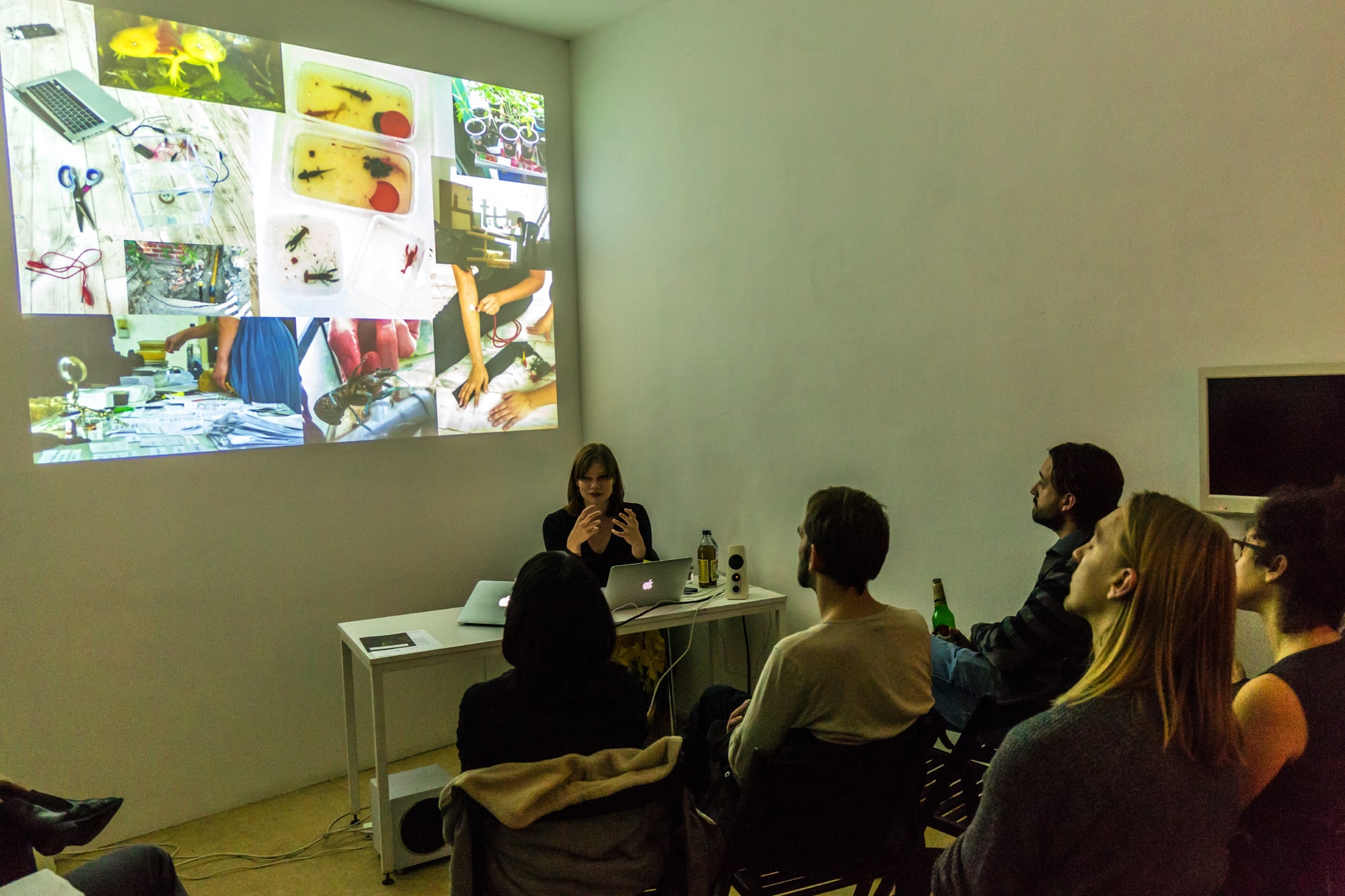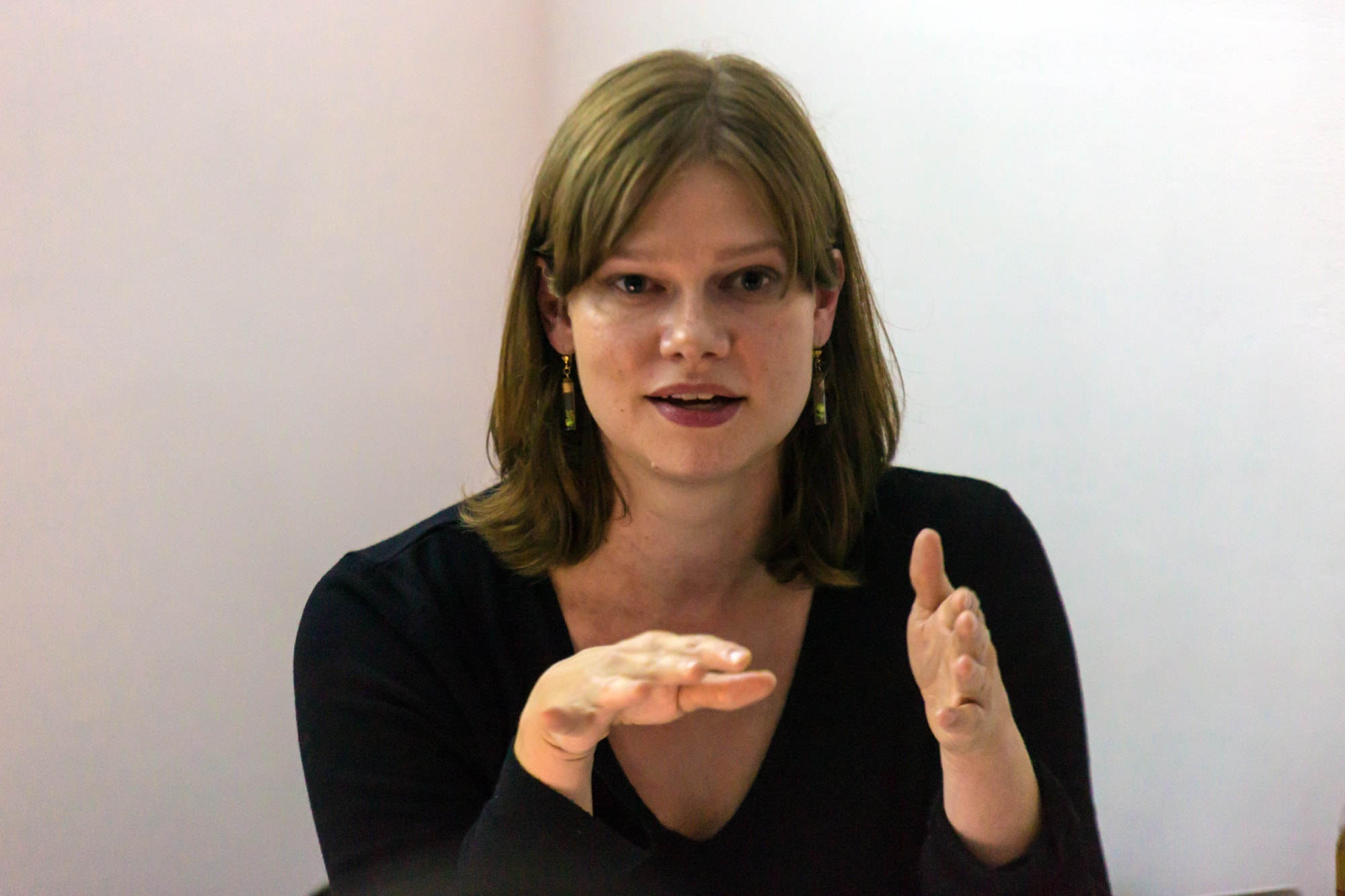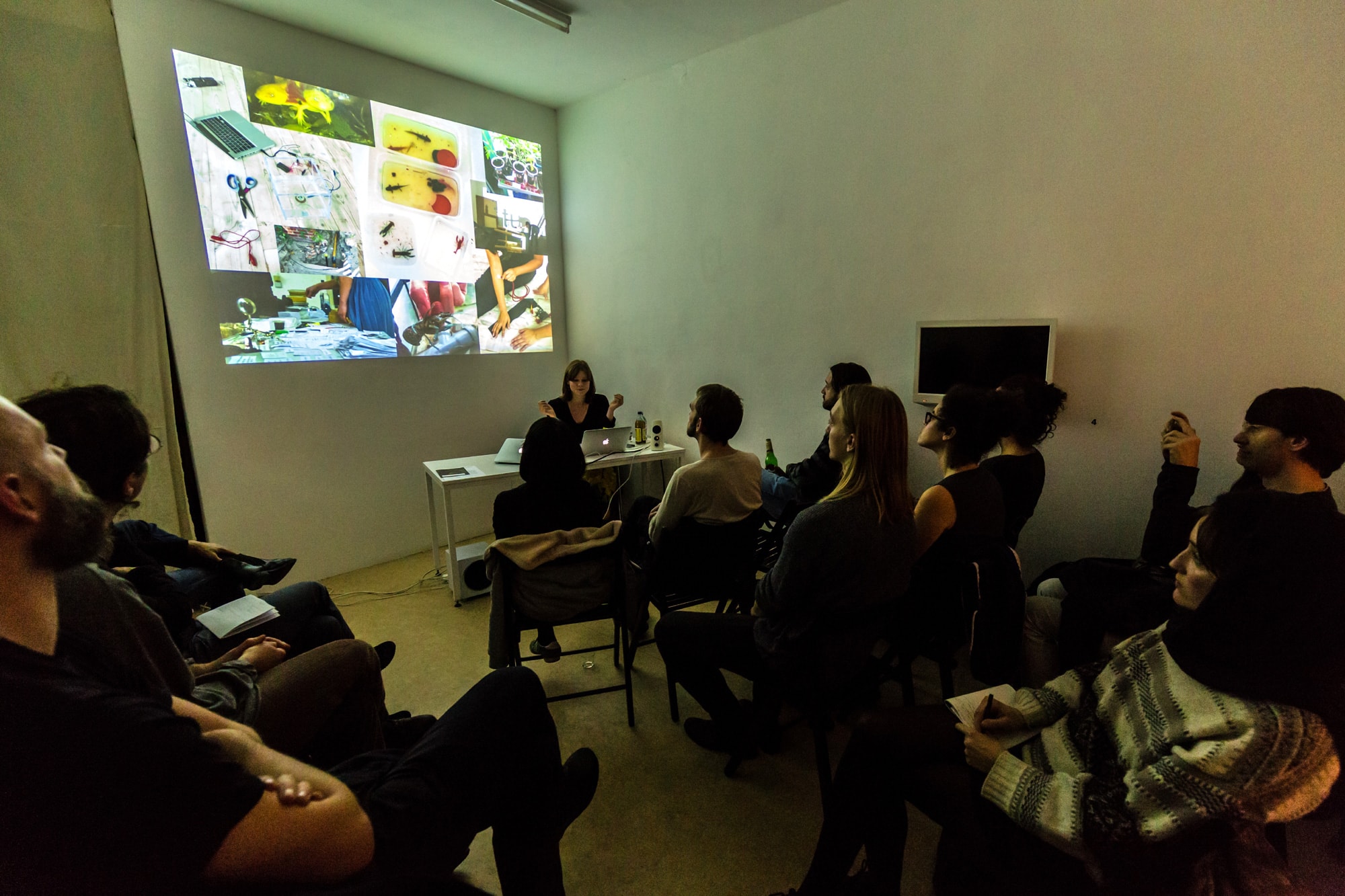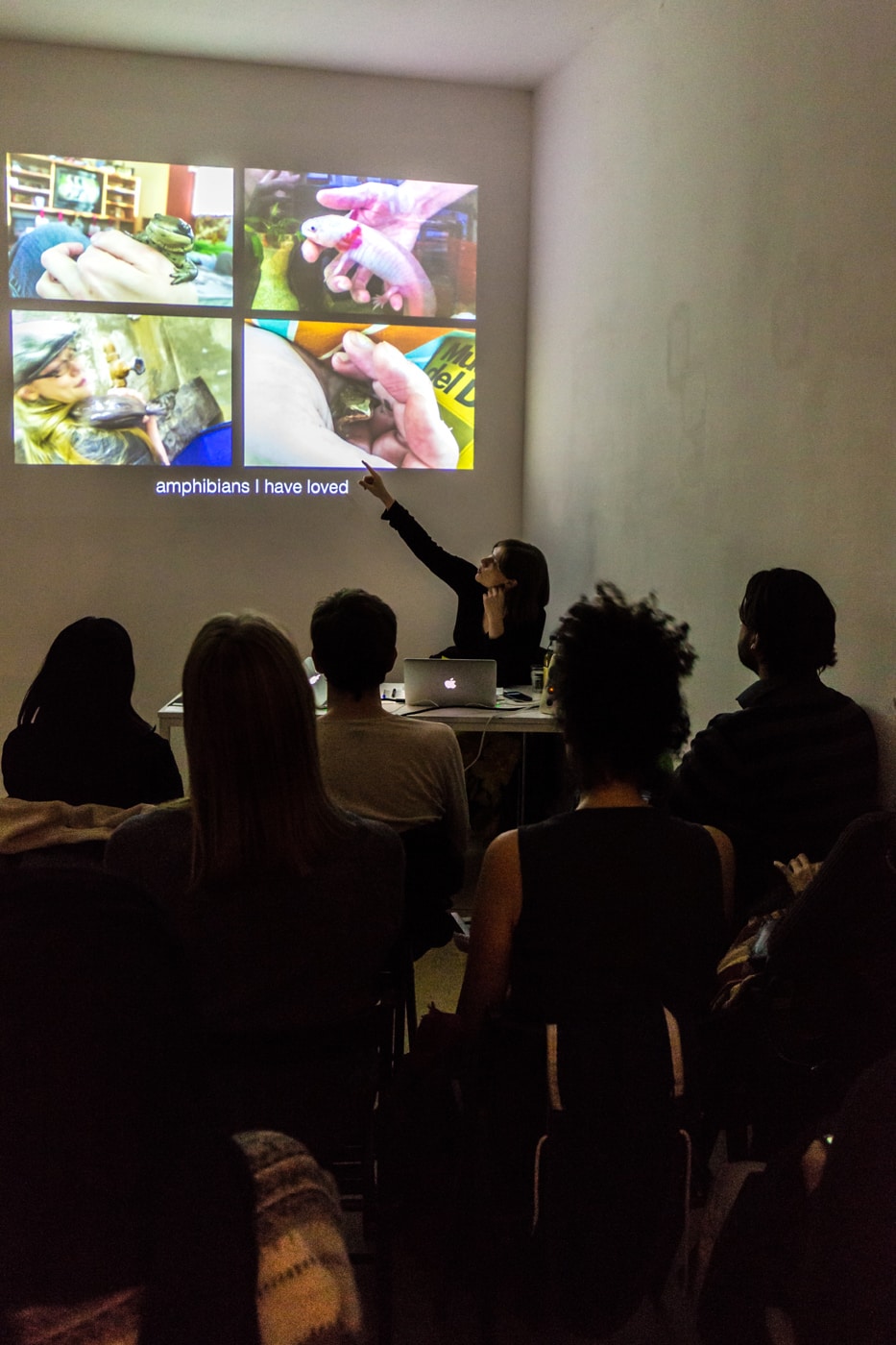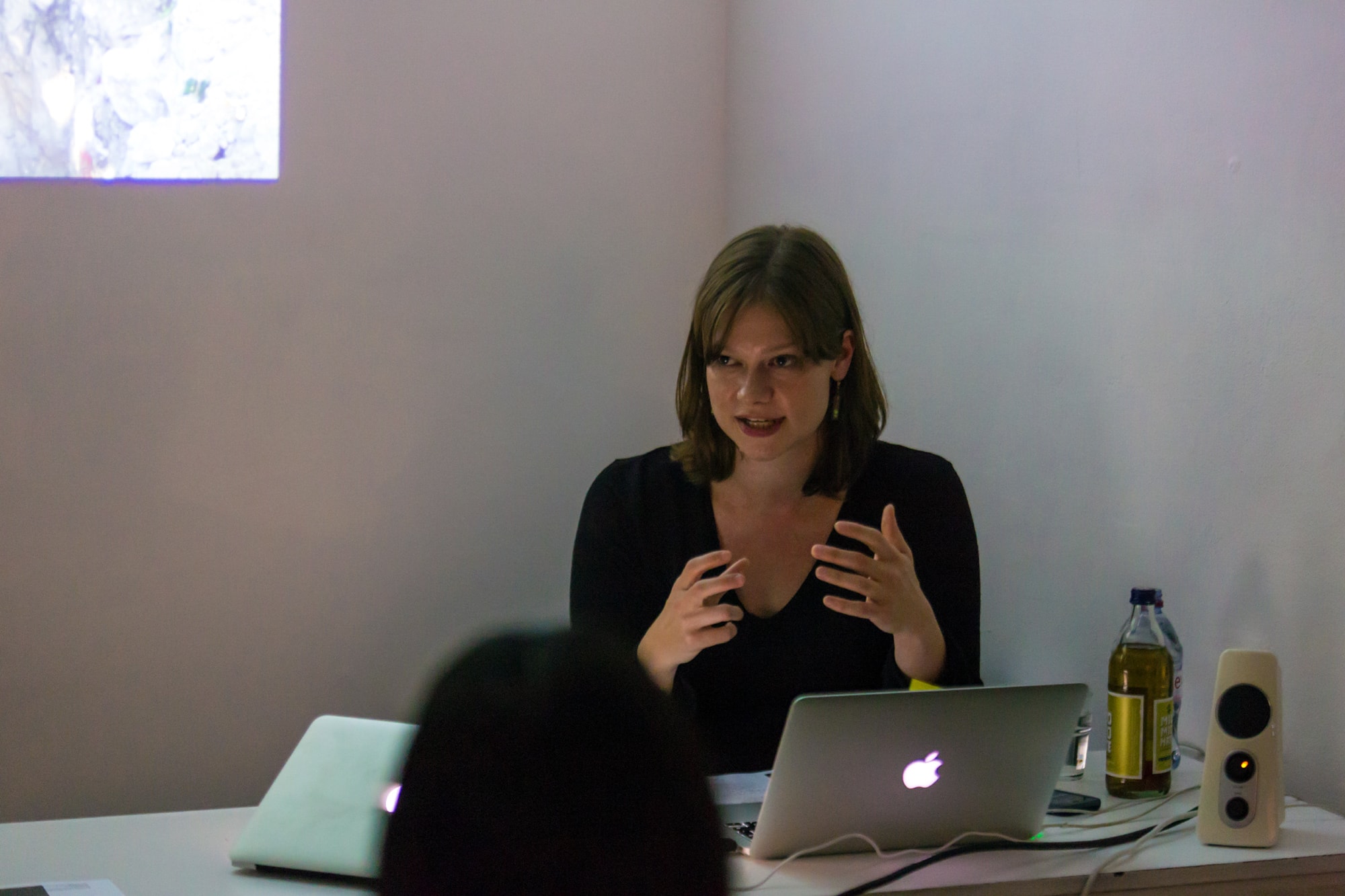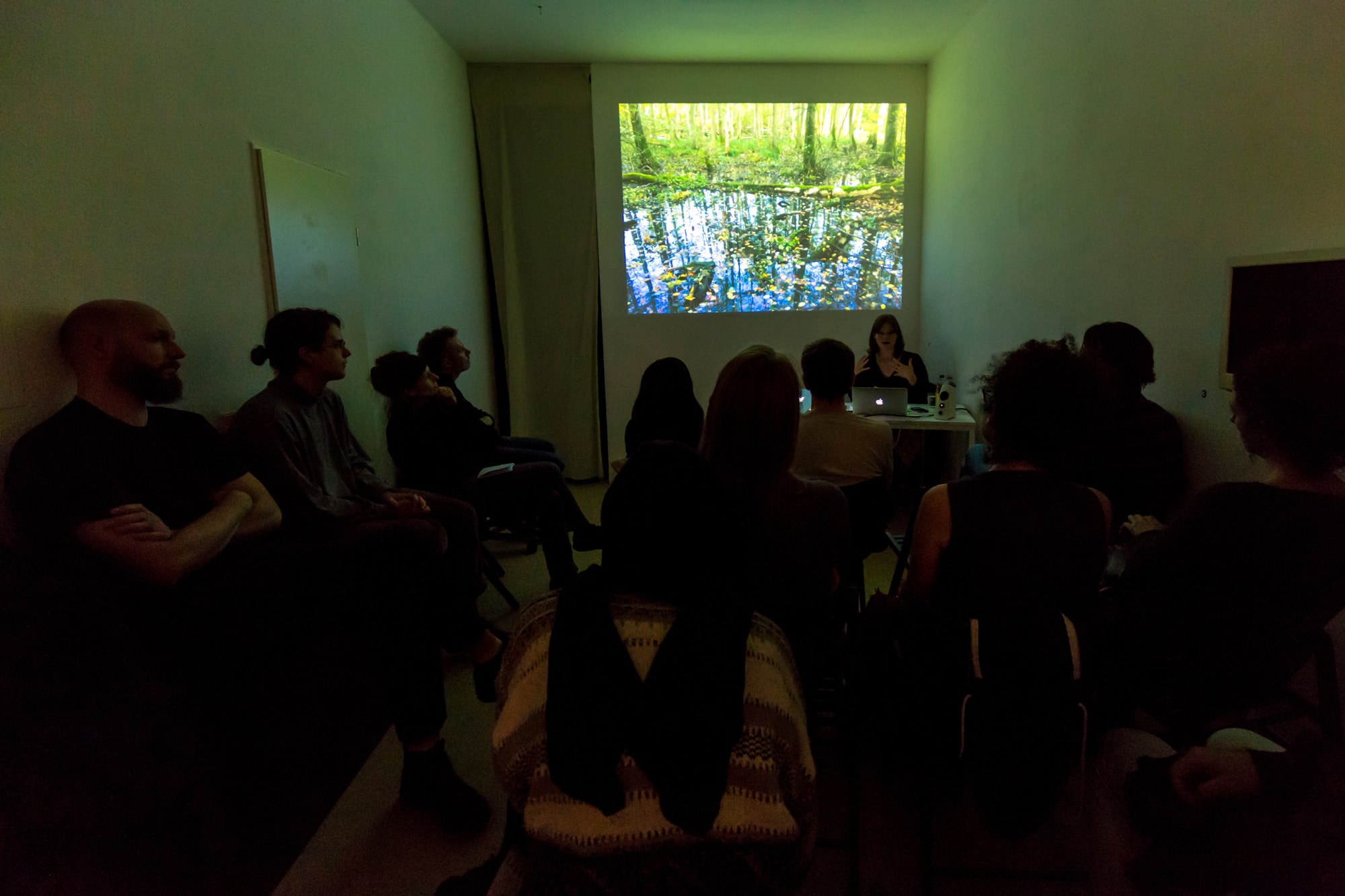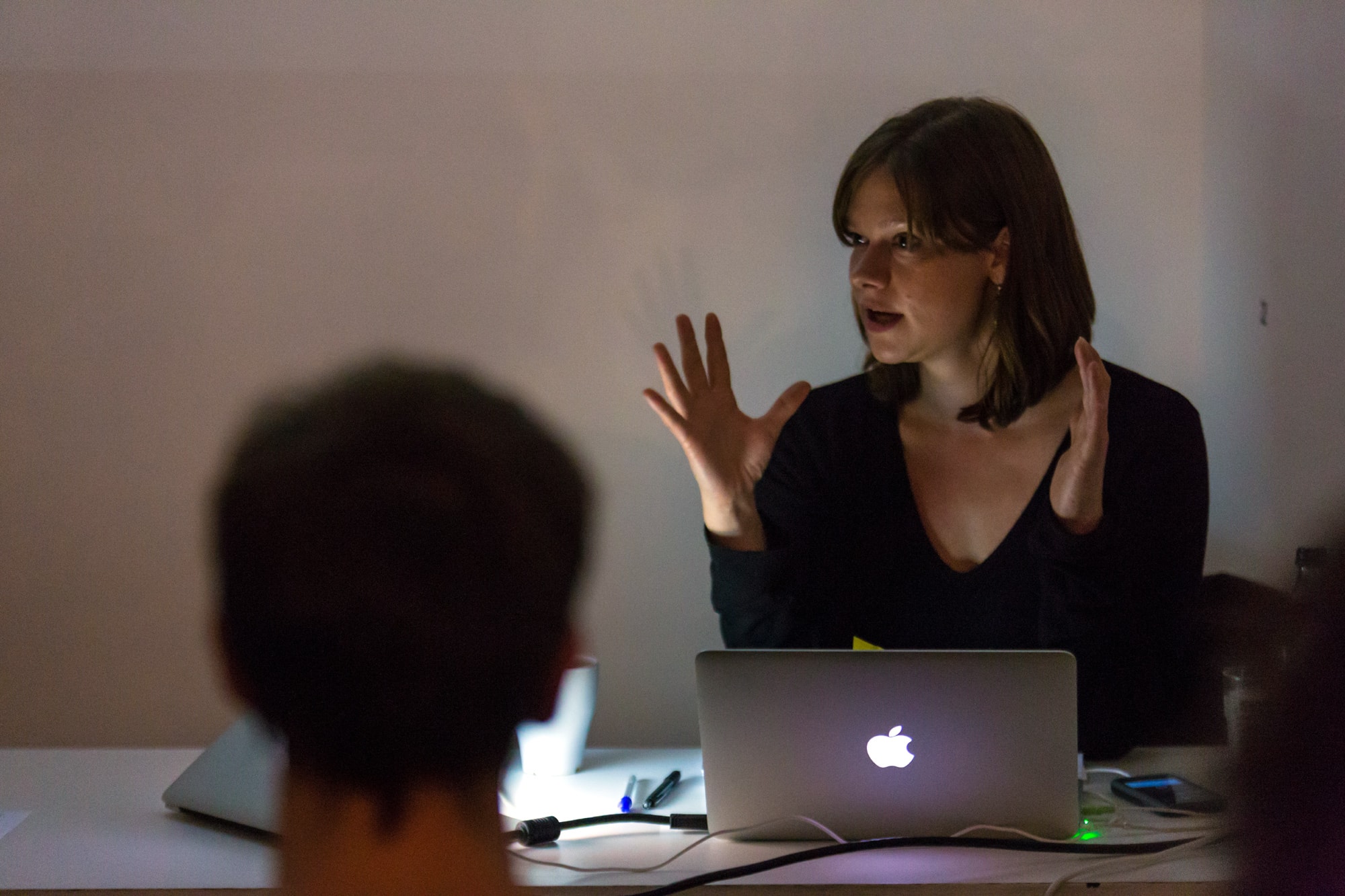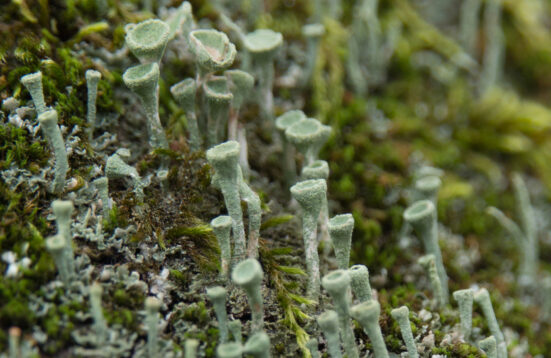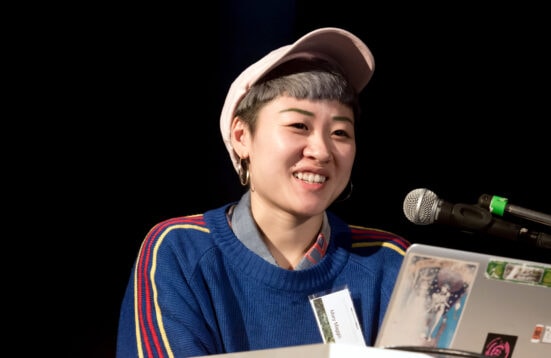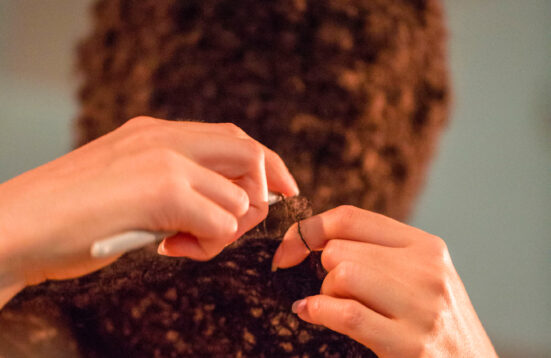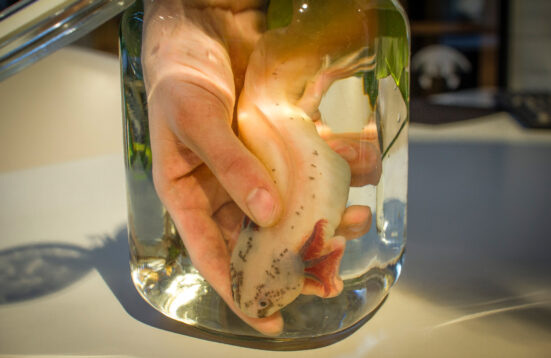Nonhuman Agents
ill-at-ease seep
Sarah Hermanutz
In her lecture the artist Sarah Hermanutz discussed the relationship between humans and wetlands, which is the focus in her long-term artistic research. Wetlands are one of the most biologically diverse and important ecosystems for life on earth, but within the past century mankind has destroyed over 50% of them. The artist’s work and research explore our historical and contemporary relationship with these environments, including the tropes and prejudices that have marginalised them and justified their continued draining and destruction. Engagement with the uncomfortable sensory and aesthetic experience of wetlands is proposed as essential to reintegrating humans within these ecological communities.
The western world associates wetlands with disease and decay, both physical and moral. Examples from art, literature, and popular culture show fear and horror of these liminal zones, and link them with corporeal “otherness” that is also mapped onto queerness, disability, alien/foreignness, and the ‘monstrous-feminine’. These unruly bodies are suppressed and repressed both physically and culturally, for the sake of troubling and purist notions of cleanliness, health, stability, and optimised economically productive systems. Large-scale drainage projects have been considered great feats of human engineering, converting marginal ‘wastelands’ into clearly defined zones of water and land, useful for anthropocentric agricultural and urban utilization.
The audience was asked to reconsider the urban ecology of Berlin, as a city built on top of river floodplains and former wetlands. The sights, sounds, textures, tastes and smells of this ecology have been formally exiled to the margins of Berlin, but they continue to seep through. This lecture is an invitation to materially and sensorially engage with wetlands, and their potential to unsettle our defensive boundaries between water/land, self/other, living/nonliving, and human/nonhuman.
Sarah Hermanutz is a visual artist working at the intersections of performance, technology, and ecology. Her sculptures, installations, and performance experiments are preoccupied with wetlands, amphibious creatures, and the mysteries of social cognition. She frequently collaborates with dancers, musicians, and audiences to explore the complex and often unspoken social assumptions between the minds and bodies of audiences, performers, and ‘props’ (both human and nonhuman). Her artistic research takes place in Berlin at Lacuna Lab, an art and technology collective she co-founded in 2015, and in the media arts department of Bauhaus University Weimar. Her performances and projects have been presented across Europe, the USA, and Canada.
http://sarahhermanutz.com/

